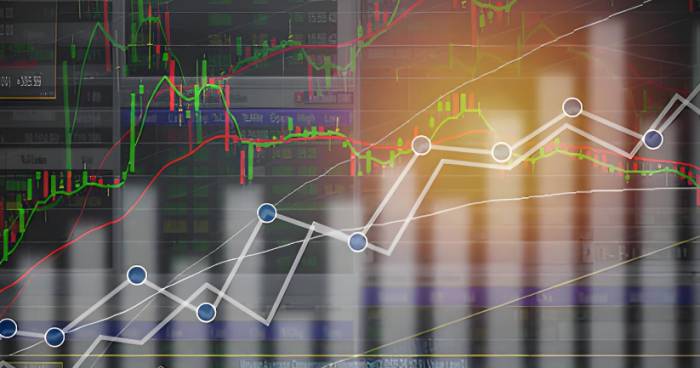Hedge Funds Massively Short A-Shares; Market Mania is Capital's Sharp Blade
In recent days, the stock market has been fluctuating repeatedly, which leads to deep thought: what kind of stock market is the healthiest? Or rather, what kind of stock market is the most friendly to retail investors? What kind of stock market do we need?
After the long holiday, the Chinese stock market has been up and down, with repeated consolidations. The capital battle is thrilling, and many retail investors dare not enter the market. How long will this situation last?
Firstly, it is undoubtedly certain that the current Chinese stock market is in a bull market cycle and will not cool down in the short term. The most powerful evidence is the trading volume.
Yesterday, on October 15th, the turnover of the Shanghai and Shenzhen stock markets broke through 1.5 trillion yuan for the 7th consecutive trading day. A total of 61 stocks in the two markets had 108 large transactions, with a total turnover of 1.557 billion yuan.
This indicates that the current stock market capital flow is still at a high level, and the trading heat is not reduced. On the other hand, institutional large capital still looks good on the stock market. An implicit aspect of this is that the battle between bulls and bears may not have ended yet.
Advertisement
Some people say, no, it fell again yesterday. This view ignores an important fact: the current Shanghai Composite Index is over 3,200 points, which has risen from over 2,600 points at the end of September.
So, is the current market with large ups and downs and a large amount of capital in and out a good thing? The answer is simple: for the vast number of non-professional retail investors, it may not be a good thing.
Because whether it's a big rise or a big fall, it's a sharp knife in the hands of capital.If the stock market's fluctuations are not pronounced, capital has little opportunity to take advantage, and can only, like retail investors, look for opportunities to compete in endurance, or even engage in value investing.
Let's look at a recent case that better illustrates the issue. A trading report from Goldman Sachs on October 10th showed that after a week-long holiday in China, hedge funds sold a record number of Chinese stocks on October 8th. At the same time, the report also showed that hedge funds not only closed their long positions but also increased their short positions, selling long positions at twice the amount of short positions.
Additionally, a recent report from JPMorgan also indicated that retail investors are currently the main force, accounting for about 60% of the trading volume.
This information at least clarifies two issues:
1. The high opening and low closing market on October 8th is likely related to the selling by hedge funds, with domestic retail investors acting as the buyers.
2. On October 8th, hedge funds cleared their long positions and increased their short positions, indicating that they are bearish on the Chinese stock market in the short term. Of course, compared to the Shanghai Composite Index opening at over 3600 points on October 8th, it has already fallen back significantly.
International capital is also clearly aware that China is determined to support the capital market, but they remain bearish in the short term.This is the significant advantage that institutions have over individual investors: they have access to a vast amount of information and data, and they possess a highly professional team of analysts. Especially during times when the stock market is highly volatile and market trends are unclear, institutions clearly have a much greater advantage.
Thus, the conclusion is clear: the stock market's "mad bull" disease is actually a swift blade for capital.

Despite hedge funds, including Goldman Sachs, Morgan Stanley, and BlackRock, creating disturbances and even being busy with shorting the large-cap A-shares, the Chinese stock market has not collapsed as a result. Instead, it has shown strong resilience and inherent stability.
So, what kind of market trend will it be next?
We mentioned a couple of days ago that this week is likely to be a peak period for foreign capital to enter the market, whether they are shorting or going long, they are all going to enter. This is because data and research reports from multiple institutions show that foreign capital is fleeing from the Indian and Japanese stock markets and entering China.
We believe that with foreign capital coming in, there are two possibilities for their operations.
First, they may take advantage of stock market fluctuations to quickly harvest profits. In that case, the stock market will still experience large inflows and outflows, with both rises and falls being normal.
Second, if we talk about conspiracy theories, they may come in organizedly and then organize short selling of large-cap A-shares, which would intensify the battle with the bulls.
That's why we have repeatedly said recently that in such market conditions, individual investors who do not have relatively professional knowledge should not take risks; it is better to be cautious and prioritize safety.This market trend is expected to continue for at least another week before gradually returning to normal.
Some may ask, given this situation, why do we still allow foreign capital to come in? Why don't we close our doors and play by ourselves, allowing all stock investors to make money? Wouldn't that be great?
I believe everyone can see that we do not need a "crazy bull" market; instead, we welcome a long-term "slow bull" market. We are not afraid of adjustments and fluctuations along the way, as long as the relatively long-term trend is upward. Recently, many people have been talking about this principle, but not everyone may fully understand it.
In a slow bull cycle, the opportunities for institutions to make quick moves will be much fewer. They will also become normal traders, relying on information, data, and professional knowledge to seriously engage in stock trading.